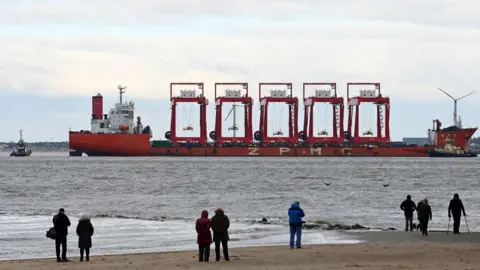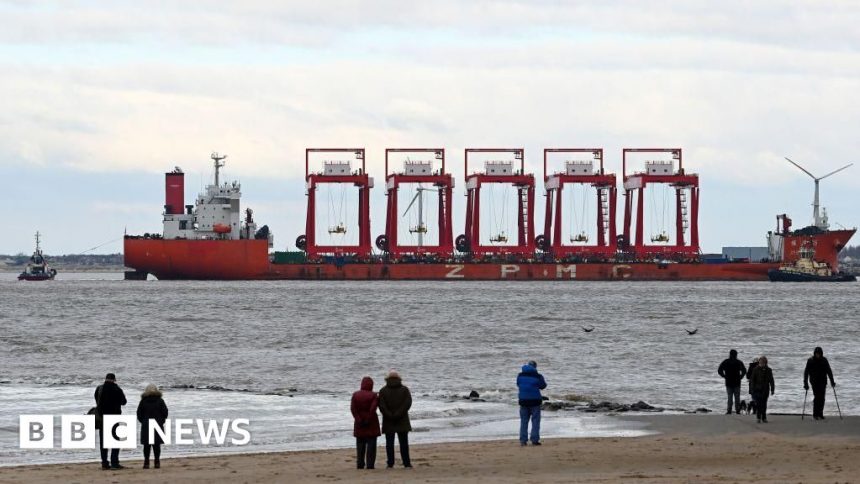UK pledges thousands of new jobs in freeports plan
 Getty Images
Getty ImagesThe UK is to announce five new freeports and a new investment zone in the Budget next week as part of a bid to boost economic growth.
Prime Minister Sir Keir Starmer said it is part of a plan to help create thousands of jobs and more trade in the UK.
Speaking to the BBC, Sir Keir said freeports – low tax zones – were “working well” despite criticism that they do not increase overall jobs numbers.
But he said “they could work better” with more involvement from local businesses and politicians.
Sir Keir acknowledged that freeports were a policy introduced by the Conservatives, but said he “didn’t want to take the ideological view that just because they were introduced by the last government we would stand them down”.
However, he said they need some improvements, including “better structures and more local authority involvement”.
What are freeports?
Freeports are areas near shipping ports or airports where imported goods are free from taxes called tariffs that are normally paid to the UK government.
Firms in these areas also pay lower national insurance – another tax – on new employees, and lower property taxes.
The idea is that they boost economic activity like trade, investment and job creation.
Manufacturers in freeports only pay tariffs on finished products that leave the site for elsewhere in the UK.
And, imported goods can be re-exported overseas without UK duties being paid.
They are located around ports in Inverness, the Forth, Teeside, the Humber, Liverpool, Anglesey, Milford Haven, Plymouth, the Solent, the Thames, and Felixstowe and Harwich.
There is also a freeport near East Midlands airport which covers chunks of Leicester, Derby and Nottingham.
Critics have suggested, however, that they simply move economic activity or jobs from one part of the country to another, rather than creating new opportunities or roles.
Sir Keir said “that’s why we would do well to make some tweaks to freeports to make sure they work in their own right”.
He said Labour wanted to see growth plans “for every area, every place” drawn up by mayors, local authorities and local businesses, “so freeports don’t sit on their own as the only source of jobs and investment in a given area”.
He also said that a new investment zone in the East Midlands, which will aim to boost high tech green industry, was “really important”.
There are already two investment zones in the UK, which apply to specific local areas and see firms offered financial incentives.
“These zones attract investment, and they’re measured in tens of thousands of well-paid jobs, so this is really good news,” Sir Keir said.
He added that economic growth is the “number one mission of this government”.
However, the watchdog that looks at the government’s finances, the Office for Budgetary Responsibility predicted in 2021 that tax breaks in England’s freeports would cost the UK government £50m a year.
It said that historical evidence suggests their “main effect” would be to move economic activity from one place to another.
Internationally, freeports have also been linked to organised crime, money laundering, smuggling, and low wages, the Scottish Greens argued in 2023.
But according to the government, freeports in the UK have attracted £2.9bn of investment and created an estimated 6,000 jobs.







